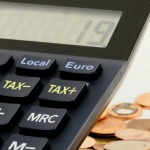 The new dividend tax rules will come into force on 6th April 2016, so you need to think about planning your current year dividends now, if you haven’t already decided on a strategy.
The new dividend tax rules will come into force on 6th April 2016, so you need to think about planning your current year dividends now, if you haven’t already decided on a strategy.
What are the new dividend tax rules?
The notional tax credit that has been applied to dividends since 1999 will be gone. This means the amount in your self-assessment tax return will be the same as the amount you actually receive.
There is a new £5,000 nil rate band – this is not the same as an allowance and so the maths of calculating your dividend tax may not work out quite as you imagined. The £5,000 as it is not an allowance, does not reduce your total income.
The £5,000 nil rate band is set against your dividend income falling within the basic rate band first, then the 40% tax (higher) band, and finally the 45% (additional) rate band.
Example 1:
An individual has employment income of £45,000 and dividend income of £4,000.
Total income of £49,000 before personal allowance and £38,000 after a personal allowance of £11,000.
The employment income is taxed first:
Basic rate tax on £32,000 = £6,400
Higher rate tax on £6,000 = £2,400
Income taxed at dividend higher rate £0 – being £4,000 less the nil rate band of £5,000.
Total tax = £8,800
Example 2:
Using similar income except the proportions are different.
Employment income of £40,000 and dividend income of £9,000
Total income £49,000 before personal allowance and £38,000 after a personal allowance of £11,000.
The employment income is taxed first:
Basic rate tax on £40,000 less £11,000 (personal allowance) = 20% x £29,000 = £5,800
Dividend income falling within the basic rate £3,000 (being £32,000 – £29,000). This is covered by the £5,000 nil rate band with £2,000 to carry to the higher rate band.
Dividend income falling within the higher tax band is £6,000 (being £9,000 less £3,000). Of this income £2,000 is covered by the dividend nil rate band, leaving £4,000 subject to tax at the dividend higher rate of 32.5%
Dividend tax = £4,000 x 32.5% = £1,300
Total tax = £7,100
If you would like help with your personal taxes and how the dividend tax will work for you, then please call Clearways Accountants on 01737 244298
